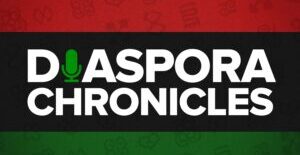“The estimated cost to start a non-skilled Private Pay Home Care agency runs typically over $40,000, Licensed Home Health non-Medicare $60,000 or more, and Medicare Certified agencies over $150,000, depending on the state in which one starts the home health agency”
We were contacted to perform a deep-dive into the home health business due to the large participation of Africans in the industry. Many Africans have made a living owning home health care agencies and based on our assessment, there are more opportunities to play in this space. We will discuss the pros and cons of the home health business, financials, ways to increase revenues and a business idea that can be built on an existing home healthcare business.

Overview
A Home Health Care Services company is usually an agency that provides a range of health medical services (skilled), as well as personal care services (non-skilled), to patients in their homes. Medical home healthcare services administer skilled licensed nursing and rehab services under physician’s guidelines, while non-medical home care services include personal care, assistance with daily living activities, meal preparation, housekeeping, and transportation. One of the fastest-growing businesses is the non-skilled home care services.
Product: Hypertension, arthritis, heart disease, chronic kidney disease, and diabetes are among the most prevalent admission diagnoses for home health care patients.
Operations: Services are provided by nurses, aides, therapists, and medical technicians as part of a care plan prescribed by a doctor. The back-office operations involve personnel management, appointment scheduling, patient data logging, equipment maintenance, and insurance billing.
Sales & Marketing: Although patients are the users of home health care services, marketing is focused on those who authorize treatments or pay for them, including doctors, hospitals, insurers, and managed care companies. Methods of marketing include presentations and calls, as well as print, and online advertisements.
Finance & Regulation: Cash management is an important function because of the large number of small transactions. Salaries and wages are a major expense. Revenue depends heavily on reimbursement rates from Medicare and Medicaid. Reimbursement from Medicare and Medicaid comes with regulations, companies need state licenses and must meet eligibility standards for certification as Medicare and Medicaid providers.
Industry Assessment
Positive trends
- Aging population: According to Definitive Healthcare, the home healthcare industry is in the midst of a rapid expansion, driven by an aging U.S. population. Population of individuals above 65 years old is about 16.9% and is expected to continue rising and forecasted to reach 20.6% by 2030. Coinciding with this population shift is this demographic is most likely to suffer from chronic diseases.
- Home preference: Elderly residents increasingly prefer to stay in their homes as opposed to a nursing facility
- Lower cost: Health care is being pushed into lower cost settings, giving home health agencies an advantage as they provide an alternative to costly nursing home and hospital care
Challenges
- Attracting and retaining skilled workers: Many health care employers report difficulty in attracting and retaining skilled nurses, primarily due to an aging RN workforce and a lack of younger workers to fill positions. Also being a home health care aide can be physically and emotionally demanding.
- Customer concentration: Many companies in the industry have reimbursement arrangements with just a few third-party payers, and therefore depend heavily on those relationships. Disqualification from a large program like Medicare would devastate most home health care companies.
- Increased regulation: Home health care companies are facing greater regulatory scrutiny; a number of companies and individuals have been prosecuted for billing fraud and other illegal practices
Financials
According to Dun & Bradstreet First Research, as of 2018, most home health companies are small companies with revenue less than $5 million. Below is a breakdown of the income statement.

Ways to grow current revenue
- Pediatric Home Health Care: Home health care for pediatric patients with long-term conditions is preferred by both doctors and parents over long hospitalizations. Pediatric courses of treatment often last for years and the rates that can be charged for pediatric services are generally higher than that of geriatric patients.
- Telehealth: Telehealth is gaining popularity in the long-term care market because it enables companies to remotely manage and monitor the health of patients using two-way webcam technologies
- Partnerships with non-healthcare industries: Since elderly patients need other services such as will management, retirement financial services, and funeral preparation, there is an opportunity to partner with legal firms, financial advisory companies and funeral homes for cross marketing and referral opportunities
Starting a Home Healthcare business
According to Ankota Solutions, the estimated cost to start a non-skilled Private Pay Home Care agency runs typically over $40,000, Licensed Home Health non-Medicare $60,000 or more, and Medicare Certified agencies over $150,000, depending on the state in which one starts the home health agency. Here is a 7-Step Process to starting an home health agency. In addition, here is a sample business plan to help you plan your start-up.
Additional Business Opportunity
A big issue with the elderly population is their mental health, specifically how to help keep their cognitive function high and combat loneliness. For those who already have a home health business, a way to increase profitability and better market your company is incorporating a Pen Pal service. Many home health patients remember the concept of pen pals when they were younger, developing a pen pal program will help patients connect with other patients in your network. You can connect elders based on their background, job history, interests etc.
This solution can be a physical letter or an email. Such a service will improve the value of your company because the client is less likely to change services because they have built friendships within your network. The program is also an organic referral service if they tell others about their new friend who is their pen pal, it promotes your home health business. This service can later scale into a full fledged Pen Pal website where other home health businesses or nursing homes can pay you a fee to use your pen pal service as it will provide a greater network of pen pals for their patients.




Do you have connections in West Africa if you want to start one of these business
Thanks, unfortunately, we currently don’t have any direct connections